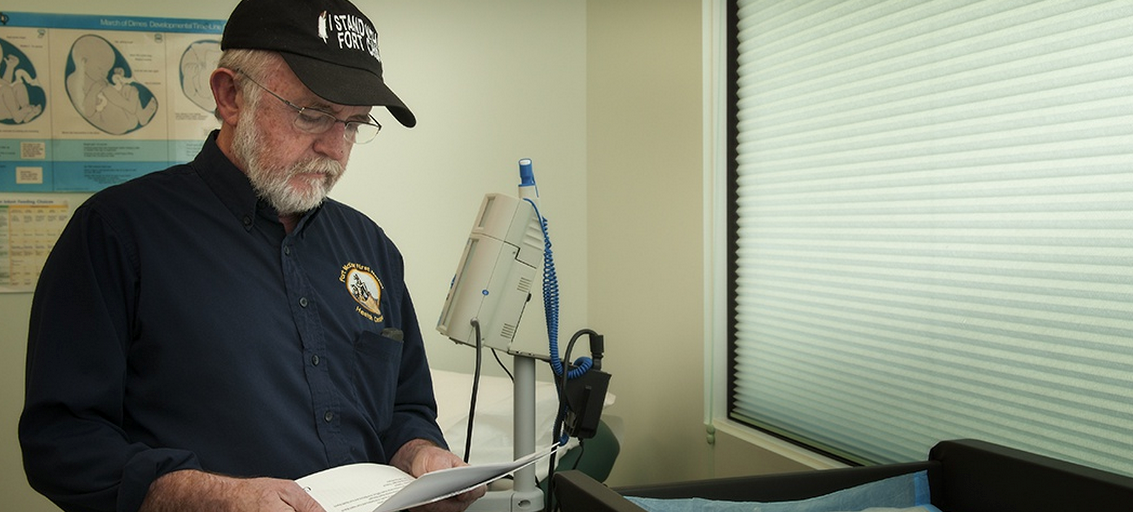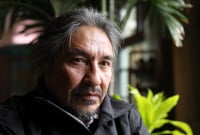Support strong Canadian climate journalism for 2025
John O’Connor recalls when Indigenous harvesters brought in crates and crates of deformed fish that were kept on ice piled high in the band office.
That was decades ago, when O’Connor was fresh in the region as a physician, making trips north to provide health care to Indigenous communities living downstream from the oilsands.
During those trips, elders and other residents told him things were changing in the region, on the land and especially in the waters. Years earlier, before the oilsands, people drank water from Lake Athabasca and boiled it for soups and stews. “It was an idyllic life,” O’Connor said. But then, the fish and the animals started to show deformities.
The community members, largely from Athabasca Chipewyan First Nation, Mikisew Cree First Nation and the Fort Chipewyan Métis Nation, had no idea what was causing these changes, O’Connor said. But their health was beginning to fail, as well.
O’Connor was told there is no word for cancer in the Dene or Cree languages, but now people were seeing it “all over the place.”
Now, after hearing that Ottawa will invest $12.5 million to support a community-led health study into the health impact of the oilsands that will span 10 years, O’Connor told Canada’s National Observer the moment feels “bittersweet.”
The announcement represents the very first acknowledgment of the issue from any level of government. O’Connor applauded the fact the study will be led by the communities and not the governments that have denied potential impacts for years.
O’Connor is no stranger to the denialism that has plagued his role as physician in the region, and as a political whistleblower. He repeatedly raised concerns he heard from his patients while officials threatened to pull his medical license for what they called was causing “undue alarm,” he said.
Those complaints plagued him for nearly three years, and all the while, the health concerns of the communities persisted, O’Connor recalled.
He even recalls the posturing of officials from Health Canada who flew into Fort Chipewyan for the first time. The community’s senior physician, in the community’s nursing station, drank a full mug of water in front of the media and said, “there is nothing wrong with the water in Fort Chip.”
“I’m still scratching my head about that one,” O’Connor said.
Even now, Alberta remains on the sidelines as Ottawa funds the study, O’Connor said. It’s not surprising to him; he sometimes refers to the province as “Oilberta.”
“They’re so anti-people, so anti-environment, so pro-industry,” he said of Premier Danielle Smith’s government and other conservative governments before hers.
But the problems extend to how Canada understands environmental health, which has resulted in a huge gap in research, he said.
Unlike the European Union and the United States, Canada remains without a dedicated environmental health research arm. Canada also spends hundreds of millions less on it than both the EU and U.S., and significantly less at a per capita rate.
— with files from Emma McIntosh
Matteo Cimellaro / Canada’s National Observer / Local Journalism Initiative






Comments
Dr. O'Connor has been so courageous in his efforts to expose the harmful effects of downstream pollution from the tar sands. And for years the government of Alberta has been trying to sweep his findings under the rug, vilifying the doctor at the same time. As a result, people have become sick with strange cancers and died. It's shameful. Maybe it's time to sue the Alberta government and the oil companies.
That'll be SUE BIG OIL!!
I looked up the populations of those three First Nations, and it's 5300 people. It's tricky to do proper statistics on that size of population, and it didn't say whether he wrote up the stats as a paper, or what numbers are available.
It seems like the oil sands will peak in a few years and then be one of the first oil sources shuttered - oil people who pretend otherwise are frankly embarrassing to eye-roll to. And it's like the system will be getting shut down before we hear any proper scientific admissions about this.